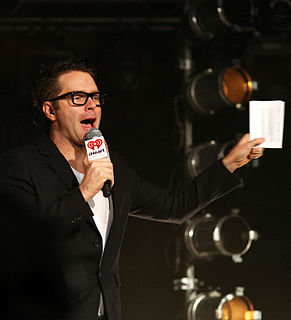A Quote by Michael Gurian
A lot of women will be sort of 'competitive like a guy' in the workplace, but then when they go home, they realize that's not fully authentic for them. They would like to have a more expansive or more authentic relationship in the workplace around competition.
Related Quotes
When I got married and had a child and went to work, my day was all day, all night. You lose your sense of balance. That was in the late '60s, '70s, women went to work, they went crazy. They thought the workplace was much more exciting than the home. They thought the family could wait. And you know what? The family can't wait. And women have now found that out. It all has to do with women, or the homemaker leaving the home and realizing that where they've gone is not as fabulous, or as rewarding, or as self-fulfilling as the balance between the workplace and the home place.
It sometimes feels like the workplace is immune from social upheaval. We go to work and do the best we can, and at the end of the day, we return to our lives. We don't abandon who we are, however, when we begin and end our workday. Who we are shapes how we are perceived in the workplace and, in turn, how we perform in the workplace.
What if not just women, but both men and women, worked smart, more flexible schedules? What if the workplace itself was more fluid than the rigid and narrow ladder to success of the ideal worker? And what if both men and women became responsible for raising children and managing the home, sharing work, love, and play? Could everyone then live whole lives?
Sheryl Sandberg and Marissa Meyer have already accomplished more than most. I think the sky is the limit for them professionally. If they can inspire more women to "lean in," as Sandberg so famously describes it - to pursue a career and a family - that would be an incredible accomplishment. If they can, by their example as hands on mothers and high powered executives, show young women that they don't need to leave the workplace when they have children, they will be superheroes.
Like Nietzsche, Heidegger also gave up on the prospect that schools and universities would nurture the kind of reflective openness to the way of things that, certainly by the 1940s, he identified with authentic thinking. The authentic person is not the Promethean, iron-willed figure that pops up in Nietzsche, but someone more like the Daoist sages whom Heidegger admired.


































